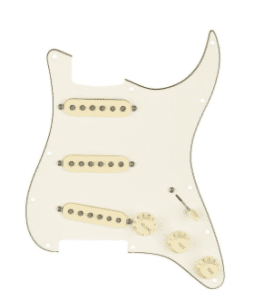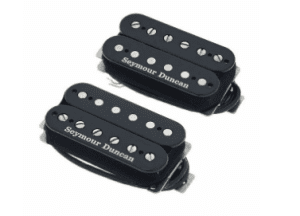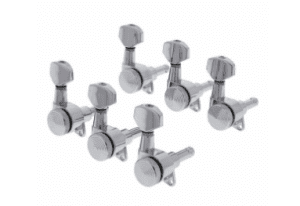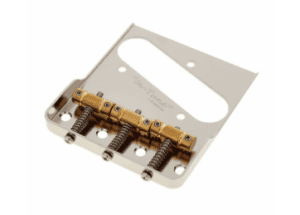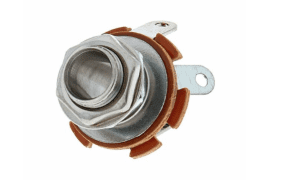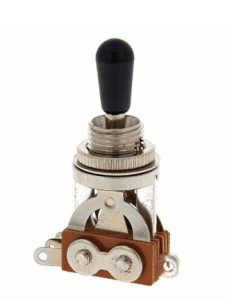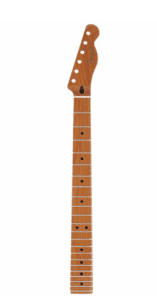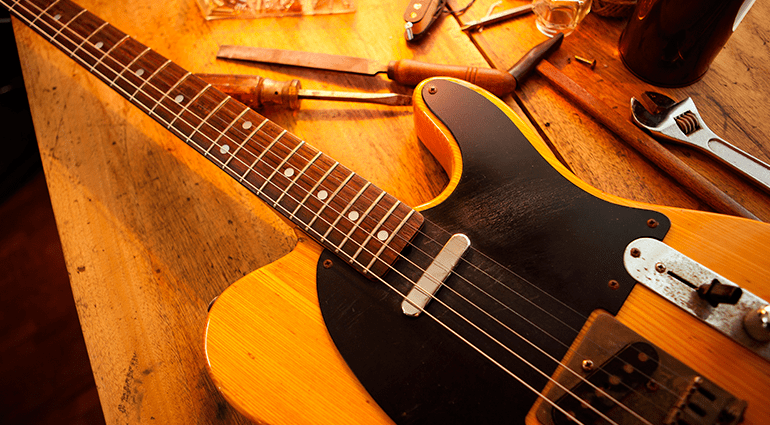
Mods can significantly improve the sound, feel, and reliability of your electric guitar. From pickups and tuners to the bridge or nut – with the right tweaks, you can get the best out of your instrument, fix annoying faults, or enhance the look of your guitar.
We’ll show you which mods your guitar can benefit from the most and which of them you can do yourself.
Check out our online E-Guitar Modifications guide!
Pickups: Which pickups are best for my guitar?
Pickups are the centrepiece of every electric guitar and, together with the body shape, are the main factor that defines the sound of the instrument.
Single-coil pickups
- consist of a single coil,
- have a clear and bright sound, well suited for pop, funk and blues,
- are more susceptible to noise interference (humming, whining).
Humbucker pickups
- consist of a double coil and are hum-free,
- sound inherently warmer and more powerful than single coils,
- are popular for jazz and blues (neck position) as well as for hard rock and metal (bridge position).
P-90 pickups
- consist of a single coil and are considered a cross between a single coil and a humbucker,
- sound more voluminous and mid-focused than single coils, but are just as susceptible to noise.
Active pickups
- have a built-in preamplifier (preamp),
- deliver a very clear and powerful sound, ideal for high-gain (metal),
- usually require a battery compartment in the body.
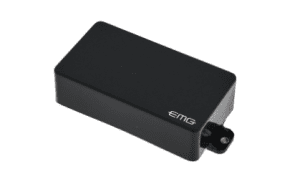
EMG 81 Tonabnehmer
Pickups for 7- and 8-string guitars
- are special pickups with longer magnets and 7 or 8 polepieces (magnetic caps),
- are less strictly standardised in their dimensions than standard pickups.
With only a few exceptions, pickups can be mixed and matched within the scope of their respective design (single coil, humbucker, P-90). And if you know how to use a soldering iron, you can do it yourself (circuit diagrams are usually available on the manufacturer’s website).
For more detailed questions, please refer to our online guide “Pickups for electric guitars” .
Which machine heads fit my guitar?
High-quality machine heads are important, as they’re responsible for providing support for your strings and ensuring the tuning stability of the instrument. Roughly speaking, machine heads for electric guitars are divided into two categories:
6L: All machine heads are arranged in a single row (ST and T models)
3L/3R: There are three tuners on each side of the headstock (single and double-cut models)
When it comes to replacing the machine heads, the axle bore (approx. 8-10 mm), shaft length (approx. 20-23 mm), and type of fastening (screw or locking bolt) are the most important factors to consider.
For a particularly quick and uncomplicated string change, so-called locking tuners can be a useful upgrade. With these, the string is locked in the tuning post with a finger screw so that no further windings are necessary.
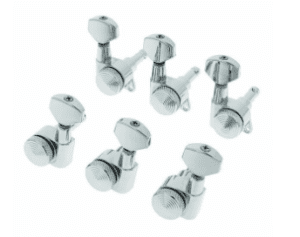
Harley Benton Parts Locking Tuners 3R/3L Chr
For a more detailed overview, check out our online E-Guitar Modifications guide!
Nut/bridge/tremolo – which parts fit my guitar?
Saddles, bridges, nuts, and tremolos are decisive factors when it comes to the sound, intonation, and string action of an electric guitar. The quality of the tremolo system (also known as the vibrato system) also plays an important role in the tuning stability of your guitar.
Many bridges and tremolos such as the Tune-o-matic bridge (TOM) for single and double-cut models, the T-style bridge for T models, or the standard tremolo for ST models are available in various designs and standardized sizes and can often be replaced without any issues. The same applies to floating tremolos such as the Bigsby or Floyd Rose systems.
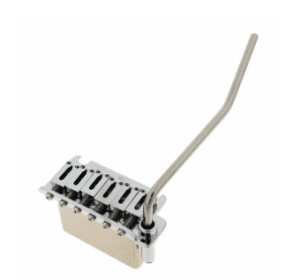
Gotoh 510TS-FE1 ST-Style Tremolo C
The nut should be measured precisely before replacing it. If in doubt, choose a slightly larger one than the original (this usually involves filing the nut to adjust it). With a pre-slotted nut, you should also inspect the fingerboard radius and the string spacing (distance from low E to high E string) before deciding on a model. As the height and quality of the nut is crucial for the intonation of a guitar, leave this work to a specialist if in doubt.
Electrics – which pots, switches, and jacks fit my guitar?
Scratchy pots, wobbly switches, and loose jacks can get on your nerves when playing and, in the worst-case scenario, can even cause the guitar to break down completely. If one of these parts keeps causing problems, a replacement can work wonders.
Installing a new jack rarely causes issues as it is standardised to the size of the plug. Only the shape of the jack plate determines whether it is suitable for your guitar model.
Switches are also available in many different designs and standard sizes for ST (5-way), T (3-way), or single-cut models (toggle switches). With a little soldering practice, you can install them yourself like all electrical parts.
When replacing pots, the first thing to consider is the resistance value. Most manufacturers use 500 kΩ for passive humbuckers and 250 kΩ for passive single coils. Another important factor is the taper, which defines the control behaviour of the potentiometer (logarithmic/linear). To ensure that your old knobs (push-on, screwable) fit after replacing the pot, keep an eye on thread and shaft diameters (Asian=metric, American=imperial), as well as the type of shaft (knurled, solid).
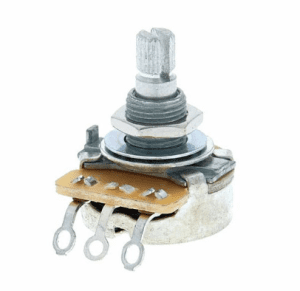
Allparts CTS 500K Audio Taper Pot
Which neck fits my guitar?
The basic prerequisite for replacing a guitar neck is that it must be a bolt-on construction, as is the case with most ST and T models. Glued necks, such as those found on single and double-cut models, can unfortunately not be replaced easily and if so, it must be done by a specialist. When replacing a bolt-on neck, you should use the same nut width as the original for optimum results (keyword: string spacing) and take a close look at the heel width and the diameter of the holes. However, as most of these values are standardised for ST and T-style guitars, many necks can be replaced in just a few simple steps.
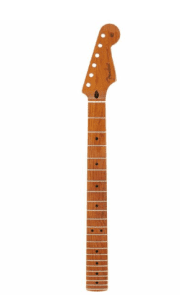
Fender Neck Roasted Maple Strat
No matter which electric guitar mods you’re considering, a guitar is only ever as good as the sum of its parts and even a small upgrade in the right place can work wonders. Good luck!
Guitar Tech Tips on our YouTube Channel
You can find detailed tips on this topic on our YouTube channel here ▶ Guitar Tech Tips with Kris! Here’s a selection of videos that might interest you:
You are currently viewing a placeholder content from YouTube. To access the actual content, click the button below. Please note that doing so will share data with third-party providers.
You are currently viewing a placeholder content from YouTube. To access the actual content, click the button below. Please note that doing so will share data with third-party providers.
You are currently viewing a placeholder content from YouTube. To access the actual content, click the button below. Please note that doing so will share data with third-party providers.
You are currently viewing a placeholder content from YouTube. To access the actual content, click the button below. Please note that doing so will share data with third-party providers.
Feedback: your electric guitar mods
Have you modified your guitar or are you planning to? What have you done or do you want to do? Let us know in the comments!
You are currently viewing a placeholder content from Facebook. To access the actual content, click the button below. Please note that doing so will share data with third-party providers.
More InformationYou are currently viewing a placeholder content from Instagram. To access the actual content, click the button below. Please note that doing so will share data with third-party providers.
More InformationYou are currently viewing a placeholder content from X. To access the actual content, click the button below. Please note that doing so will share data with third-party providers.
More Information